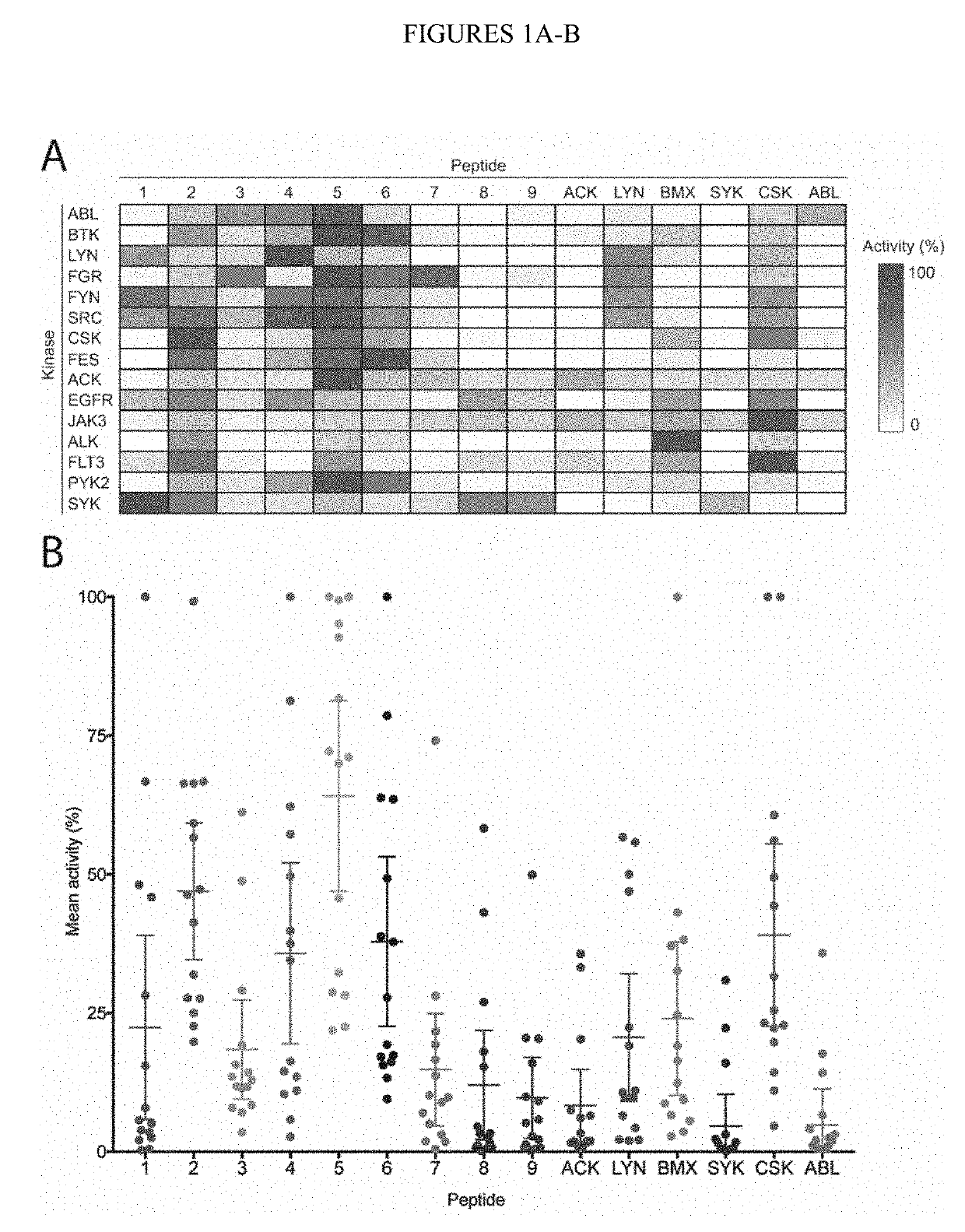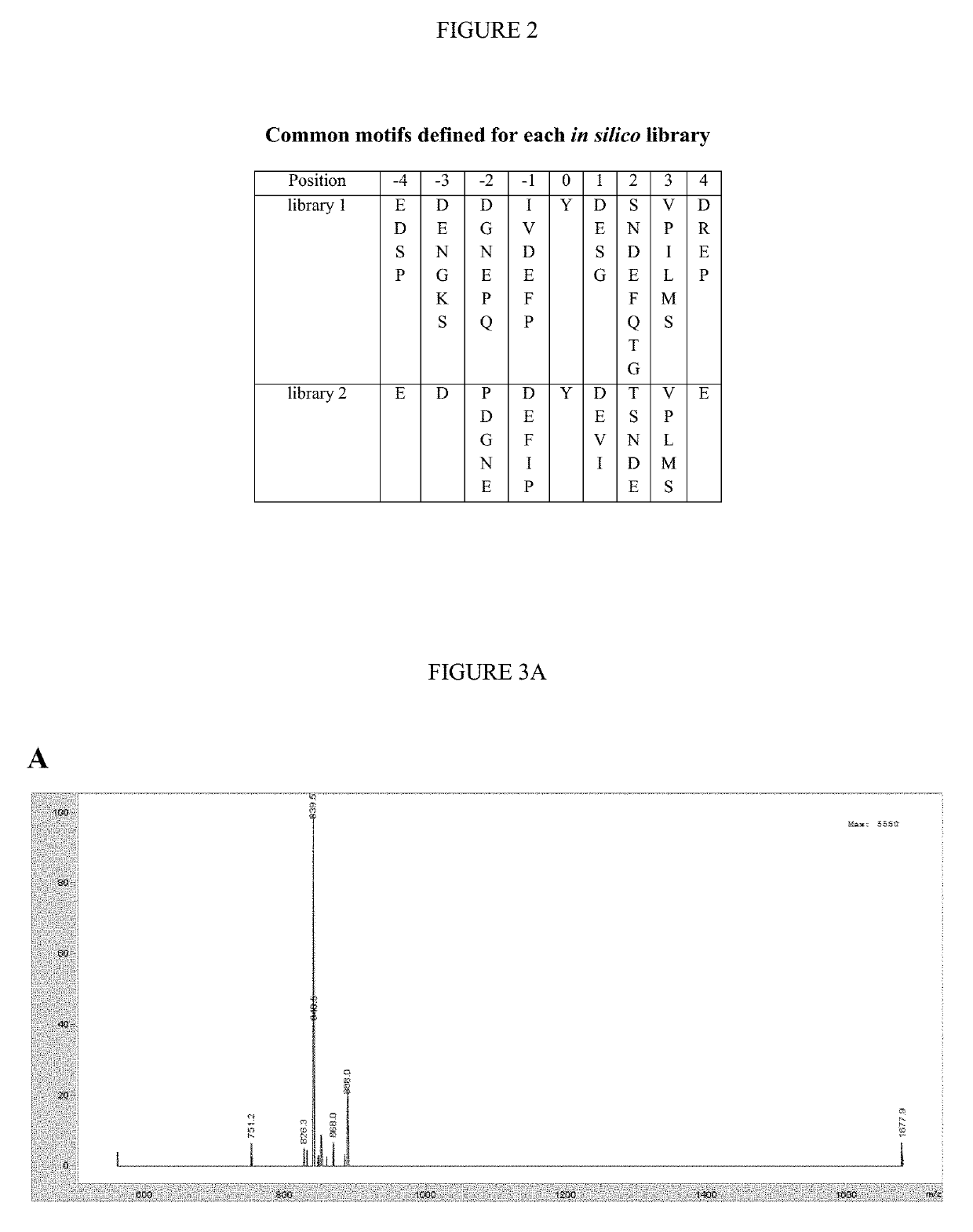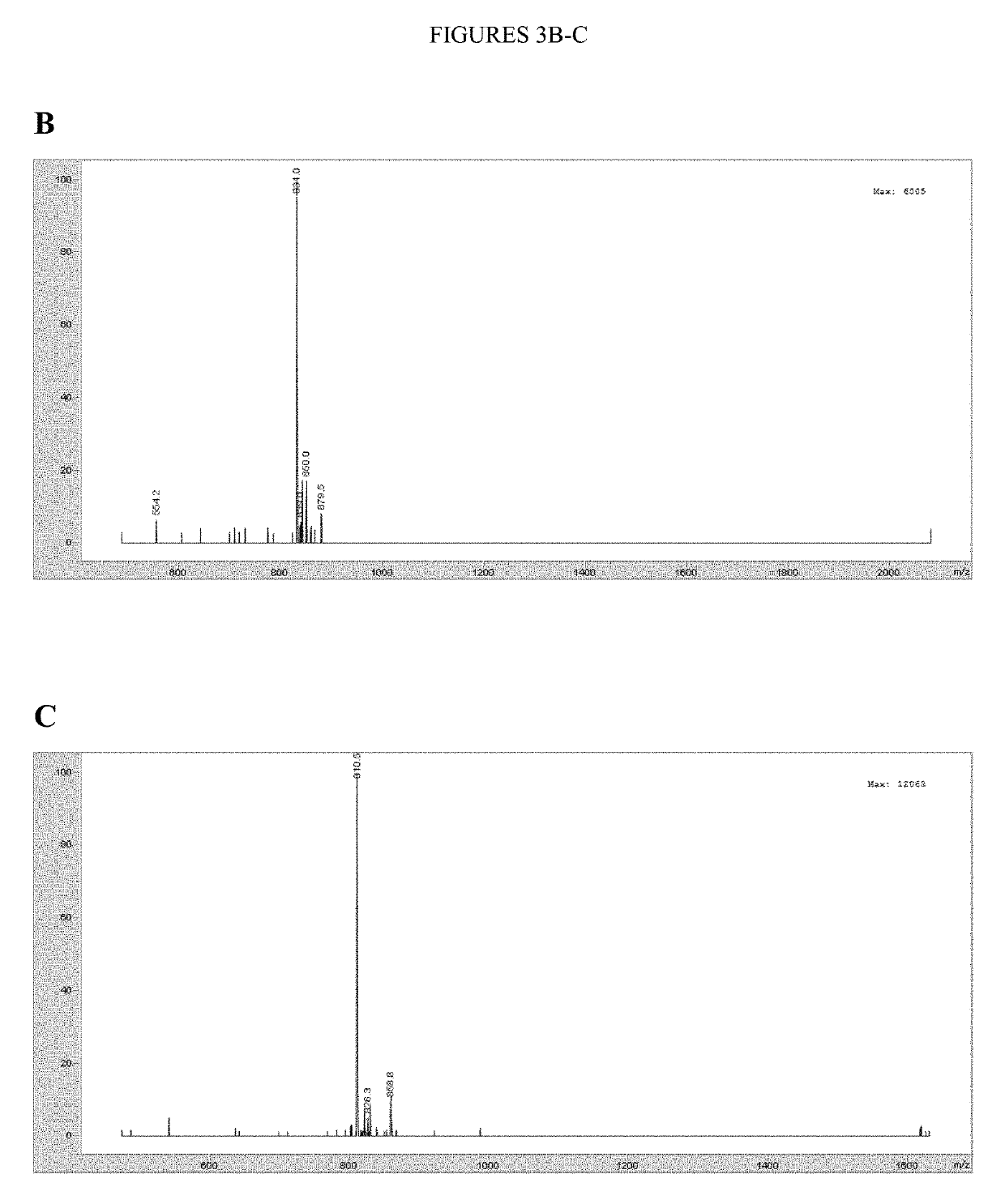Universal kinase substrates and methods of use thereof
- Summary
- Abstract
- Description
- Claims
- Application Information
AI Technical Summary
Benefits of technology
Problems solved by technology
Method used
Image
Examples
example 1
Design and In Vitro Characterization of Universal Tyrosine Kinase Peptide Substrates
[0268]The majority of the 90 human protein tyrosine kinases (PTKs) are understudied ‘orphan’ enzymes with few or no known substrates. Designing experiments aimed at assaying the catalytic activity of these PTKs has been a long-running problem. In the past, researchers have used polypeptides with a randomized 4:1 molar ratio of glutamic acid to tyrosine as general PTK substrates. However, these substrates are inefficient and perform poorly for many applications. In this work, the KINATEST-ID pipeline was applied for artificial kinase substrate discovery to design a set of candidate “universal” PTK peptide substrate sequences. Two unique peptide sequences from this set were identified, which had robust activity with a panel of 15 PTKs tested in an initial screen. Kinetic characterization with seven receptor and non-receptor PTKs confirmed these peptides to be efficient and general PTK substrates. The b...
example 2
reen of U2 and U5 Phosphorylation
[0290]Two universal tyrosine kinase substrate peptides (U2: EDPIYVTLEGGKKK (SEQ ID NO:19) and U5: DEAIYATVAGGKKK (SEQ ID NO:20; kinase substrate portion in italics) were synthesized with two additional glycine residues (as a neutral linker) and three lysine residues (to assist with phosphocellulose membrane capture in the Reaction Biology “Hot Spot” radioactive ATP kinase assay). These were tested by Reaction Biology Corporation using their Hot Spot kinase assay service (Anastassiadis et al, Nature Biotechnology, v.29, pp. 1039-1045, 2011) in 50 kinase reactions (in technical duplicates for each) with different kinases. Kinase reactions were performed in reaction buffer containing 20 mM Hepes pH 7.5, 10 mM MgCl2, 1 mM ethylene glycol-bis(β-aminoethyl ether)-N,N,N′,N′-tetraacetic acid (EGTA), 0.02% Brij35, 0.02 mg / ml bovine serum albumin (BSA), 0.1 mM Na3VO4, 2 MM dithiothreitol (DTT), 1% dimethylsulfoxide (DMSO), enzyme, and either the U2 substrate o...
PUM
| Property | Measurement | Unit |
|---|---|---|
| Fraction | aaaaa | aaaaa |
| Fraction | aaaaa | aaaaa |
| Nanoscale particle size | aaaaa | aaaaa |
Abstract
Description
Claims
Application Information
 Login to View More
Login to View More - R&D
- Intellectual Property
- Life Sciences
- Materials
- Tech Scout
- Unparalleled Data Quality
- Higher Quality Content
- 60% Fewer Hallucinations
Browse by: Latest US Patents, China's latest patents, Technical Efficacy Thesaurus, Application Domain, Technology Topic, Popular Technical Reports.
© 2025 PatSnap. All rights reserved.Legal|Privacy policy|Modern Slavery Act Transparency Statement|Sitemap|About US| Contact US: help@patsnap.com



